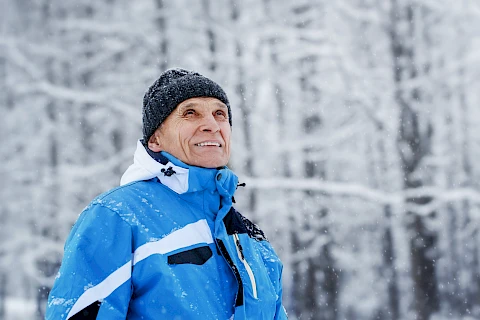
As winter approaches, it brings with it a host of unique challenges, especially for older adults. Cold weather, snow, and ice can create hazardous conditions, making it difficult for seniors to stay safe. Caregivers must adopt proactive winter safety measures to protect the seniors in their care. Senior Helpers North York will offer practical tips for caregivers to maintain the health and safety of older adults throughout the winter months.
The Risks
Winter presents several risks for seniors, from icy sidewalks that can lead to falls to hypothermia in inadequately heated homes. Cold temperatures can worsen existing health conditions such as arthritis and cardiovascular problems. Therefore, awareness and vigilance are key to winter safety for seniors during these months. Caregivers need to recognize these seasonal risks and know how to reduce their effects.
Preventing Falls
Falls are a major concern during winter. To minimize this risk, it's essential to maintain clear walkways indoors and outdoors. Regularly clear snow and ice from driveways, sidewalks, and steps. Indoors, secure loose rugs and ensure paths are well-lit.
Footwear can also help prevent falls—encourage seniors to wear boots with non-slip soles. Assistive devices such as canes or walkers should be available for added stability, especially for those who are unsteady on their feet.
Ensuring Proper Home Heating
Proper home heating is vital for winter safety for seniors and helps prevent cold-related illnesses. Caregivers should ensure safe heating practices, such as using space heaters with automatic shut-off features and never leaving them unattended. Regular maintenance of heating systems is also essential—ensure filters are changed and that there are no carbon monoxide leaks. It's important to keep the home warm but not overheated; maintain a comfortable temperature and ensure seniors are dressed in layers to help regulate their body heat efficiently.
Preparing for Winter Emergencies
Preparation is key when facing potential winter emergencies. Caregivers should create an emergency kit that includes essentials like blankets, flashlights, batteries, non-perishable foods, and bottled water. Having a communication plan is also equally important. Ensure there's a charged phone on hand and know who to contact in case of power outages or other emergencies. Keep an adequate supply of necessary medications on hand, as winter storms can sometimes impede travel.
Regular Check-Ins
Frequent communication is also a crucial aspect of winter safety for seniors. Regular visits or calls help monitor their health and well-being. It's also an opportunity to ensure their living conditions remain safe and warm. Encouraging social interaction is beneficial for mental health, as isolation can increase during colder months. Even simple activities like phone calls or video chats can help combat loneliness.
Proactive Safety Measures
Keeping seniors healthy involves more than just avoiding falls or ensuring warmth. Encourage flu shots and vaccinations to protect against seasonal illnesses. A balanced diet and regular exercise also help maintain physical health and improve mood. By staying informed about weather forecasts and advisories, caregivers can plan and avoid hazardous situations such as icy roads or severe snowstorms.
Discover Reliable Care From Senior Helpers
Winter safety for seniors is a priority that demands careful planning and attention. For those who require additional support with senior care, contact us at Senior Helpers North York. Our professional caregiving services ensure your loved ones are protected and cared for in North York, no matter the season.